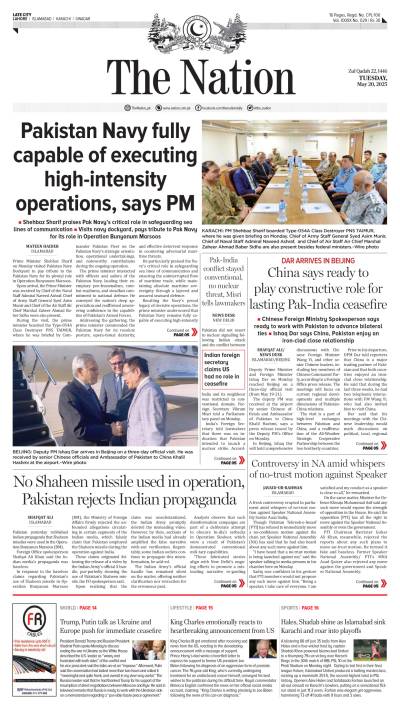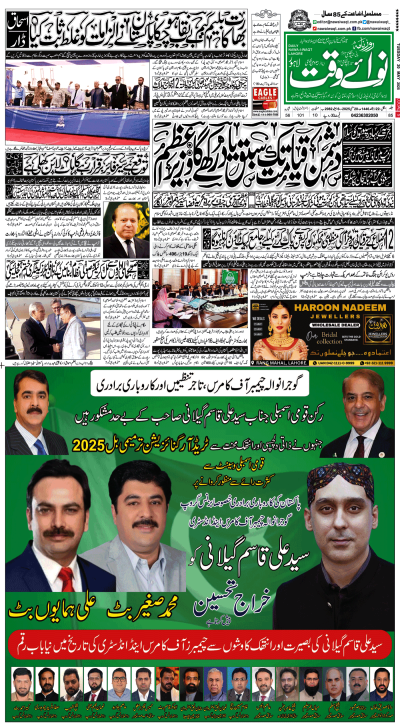The business of selling prize bond numbers, known as parchi jua, is thriving in most parts of the country. It has become the favourite form of gambling among a great number of lower and middle class people especially among new generation of people who want to become millionaires through shortcuts. Even though parchi jua is legally banned in Pakistan, dealers have established shops to portray it as a legitimate business. Gambling dens are operated by influential personalities of the areas in collaboration with some black-sheep in police department as their palms are greased.
Although all forms of gambling exist in our country, the prize bond slips/numbers ‘parchi jua’ is the most prevalent, especially in Sindh and Punjab. The lower cost and better odds in this gambling are the main reasons which have attracted a colossal number of punters from the lower and middle classes. The minimum price of a parchi (slip) is Rs.10 while the maximum price is Rs.10,000. The 14th and the last day of every month, the day prior to the prize bond draw, is usually known as Chand Raat among the fellows. Initially the major buyers of the prize bond slips were from the lower class but now people from the middle class are the main purchasers. The investors stock bonds worth billions of Rupees and sell the number in an open market. The dealers have established outlets and each outlet has its own operational network and employs a team of efficient workers and brokers to deal in prize bond slips. They do business worth millions of rupees on a daily basis.
There is nothing good that comes out of gambling and it hurts everyone morally, financially, socially and psychologically. From the medical point of view, the fanatical gamblers can be affected by depression, insomnia, intestinal disorders, migraine and other stress related problems. In spite of the facts, an extraordinary number of people from all walks of life are enthusiastically involved in it and lose a mammoth amount of money chasing glitz and glamour. Financial woes, and avariciousness to become a millionaire overnight, are the main causes which have forced the people to indulge themselves in the illegal game of parchi jua. The majority of punters in these schemes make frequent visits to forecasters who have developed reputations for picking the right numbers.
There are various methods of wagering on prize bond numbers. Purchase of the first digit of a serial number is called a safha bet; buying the first two figures is aakra; betting on three or more figures is possible too. One can even bet on whether the winning numbers will be kali or jut (odd or even).
Arroding to Islamic Shariah gambling is unlawful (haram). It is evil and forbids all Muslims from taking part in it. The purchase of lottery tickets in the name of charity, where the money is not refundable and only a few people win money without any effort, is harām. It is gambling and a very great sin. The Holy Quran states: “They ask you about intoxicants and games of chances. Say: in both of them there is a great sin” (Surah al-Baqarah 2:219). The Holy Prophet (PBUH) said: “Every competition is gambling where the loser has to pay a certain amount. Even if it consists of cashew-nut or wager dung.”
According to the Islamic point of view, a person who wins in gambling makes a lot of easy money. Obviously, he looks for ways and means for self-indulgence to splurge his ill-gotten wealth. In fact, profit from harām means paves the way towards further unlawful evils. Avarice is the characteristic of all gamblers. The gambler who wins is so obsessed that he wagers more around larger profits. The loser is equally obsessed to win back what he has lost.
No doubt gambling is a socially unacceptable norm in our Islamic society. It causes and encourages deviant behavior among the passionate punters. The ever thriving trend of the prize bond numbers, known as parchi jua, is a serious threat to our society as a whole and especially to poverty-stricken section of population. It affects moral values and academic capabilities of our youths, who remain engaged in this practice throughout the day. The government needs to take responsibility to purge society of it completely. It should initiate strict measures rather than being a silent spectator.






